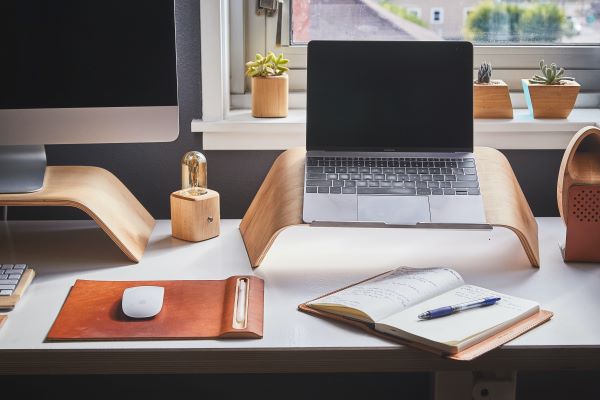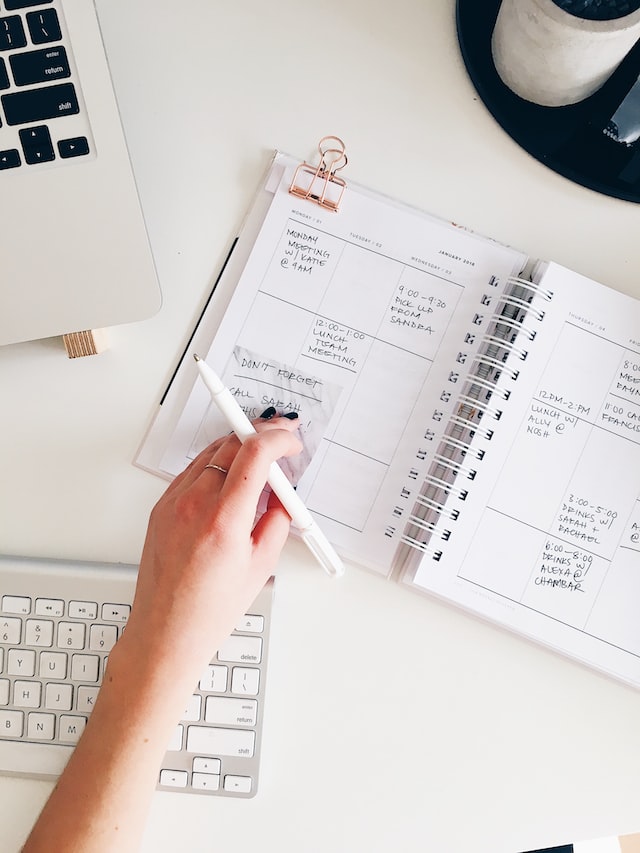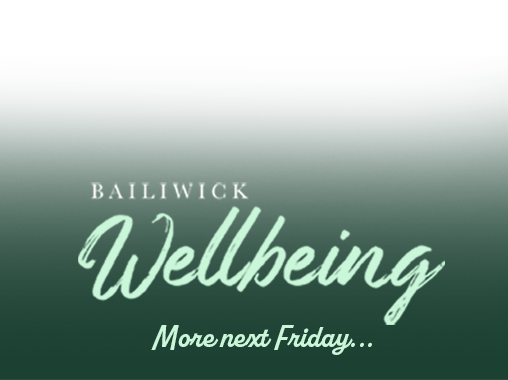


We spend one third of our lives at work – yet two thirds of people with a mental health problem say that work either causes or exacerbates their poor mental health.
We spoke to an expert about the burnout signs you could be missing, and how to create a mentally healthy workplace...
One specialist in that area is Nancy Thomas of the Jersey Recovery College, which has just launched a course on creating mentally healthy workspaces.
As someone who has experienced mental health difficulties herself, admitting that, “over a 25-year career have found it very challenging to discuss with line managers or colleagues”, she knows better than most what a healthy workspace should look like – and the signs that something is going wrong…
The signs can be different for everyone. For one person, it may look like they are coping really well and for another, it may seem obvious that they are dealing with a mental health issue.
The key thing to look out for in others, especially when we know them well, is a change in behaviour with no other explanation for it.

Pictured: Everyone should feel safe to "share any mental health challenges they may be experiencing and not feel judged or discriminated against as a result".
Someone who is experiencing depression my want to sleep more, for example, or they may want to eat more food, whilst some people don’t have an appetite at all.
Some people become more reluctant to be socially engaged and others can lose interest in things that would usually excite them. Some people exhibit all of these, of course
Other signs to look out for might be irritability, looking tired or being more withdrawn. The list is long but that’s because humans are complex…
This is a question we get asked a lot and it can be a very emotive situation for someone to deal with. We have designed a whole course to help people cope with this situation in the workplace because there are so many aspects to it.
The first thing to say here though is that it’s ok to ask if someone is ok and often people respond really well to the question. It can be daunting though, especially with a work colleague you may not want to offend.
The second thing to note is, what will you do if the answer is no? This alone puts many people off from answering the question, but the next steps don’t need to be difficult. It’s a good idea to make sure you know what help there is in your workplace.

Pictured: "It’s ok to ask if someone is ok and often people respond really well to the question."
More and more workplaces have Mental Health First Aiders, trained members of the team who can talk to someone who might be experiencing a mental health crisis and they will also have the contact details for other support agencies and professionals. In other workplaces HR might be the best support and for others a line manager would be the right person to speak to.
We believe that everyone deserves to work in a mentally healthy environment.
That means they feel safe to share any mental health challenges they may be experiencing and not feel judged or discriminated against as a result.
It also means creating an environment that actively challenges the stigma around mental health and a culture that doesn't negatively impact mental health.
Mindfulness can be such a useful tool and a minute of mindfulness a day can make a powerful difference over time. We can do anything mindfully - from washing up or breathing to drinking tea. The key is to focus on the now, the present, and take a few moments to hear, see, smell, taste and touch in that moment. Experience it with all of your senses.

Pictured: " Find what’s right for you and if you’re not sure try a few different things and notice how you respond."
I find a tidy desk helps me to focus, but everyone is different and for some a bit of clutter might be right for them. Find what’s right for you and if you’re not sure try a few different things and notice how you respond.
The key word here is balance, especially in stressful periods. We all know it’s easier said than done. In order to give yourself the best possible opportunity to maintain that balance, it can really help to identify the things that keep you well and grounded and plan them into your day.
That might be parking further from your office and walking for 20 mins to work or blocking time out in your calendar to take a break between meetings or for lunch. (How many of us have forgotten to take lunch whilst having back-to-back online meetings?).

Pictured: Make time for the things that keep you well.
Identify and plan and then, maybe at the end of the week, take a look back and see how many times you managed to do the things that keep you well and how many times you skipped them. If you are skipping a lot, it may be time to reassess your priorities.
Other suggestions for keeping well:
Running
Drawing/Painting
Connection with friends
Meditation
Going to the gym
Music
Healthy food
Family time
Cooking
Gardening
Time just for you (even five minutes can make a difference)
Sea swimming
Knitting
Being in in mature
Dancing (like no one’s watching!)
Gratitude (think of three things you are grateful for)
We wanted to create training to help people cope with and manage mental health in the workplace and support a cultural change.
The approach is focused on breaking down the stigma associated with mental health and normalising conversations around how we can support each other.

Pictured: The Recovery College's courses for workplaces are focused around supporting a cultural change.
They are a little different to our Community courses and take a workplace perspective, but also recognise our need to connect and feel part of something bigger.
…To build our Mental Health at Work programme, we approached 40 local businesses on island during 2019 and asked them what they needed.
The outcome was a series of courses that have been created through co-production with professional facilitators and people with lived experience of mental health issues in the workplace.
A 2021 survey conducted by Mind UK found that 41% of employees said their mental health had worsened during the pandemic so we know the issues are still there. 80% of local businesses have no mental health strategy or policy in place to support mental health within the workplace and we want to change that.
For more information about their courses, you can visit the Recovery College website.
This article first featured on Bailiwick Wellbeing, your free weekly guide to wellness in work and island life. Sign up now here.

Comments
Comments on this story express the views of the commentator only, not Bailiwick Publishing. We are unable to guarantee the accuracy of any of those comments.